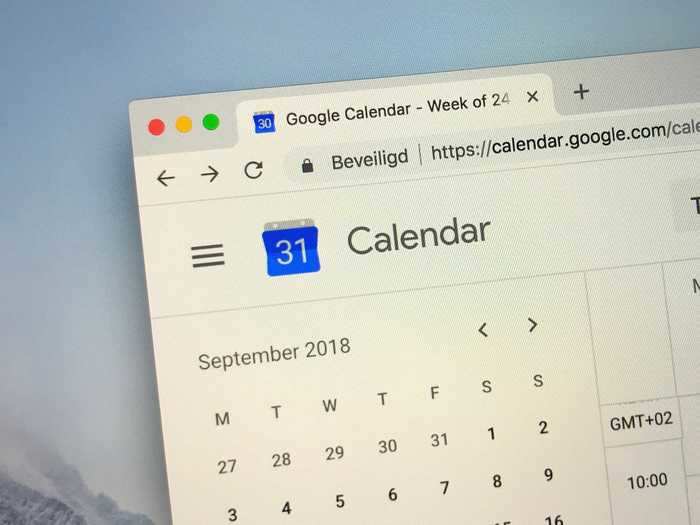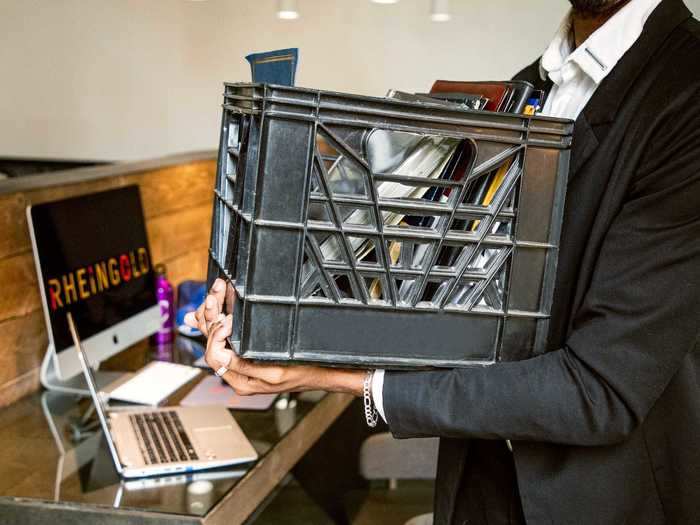"With so much of the workforce out of employment right now, landlords need to be flexible," Zillow economist Joshua Clark told Business Insider.Ryan DeBerardinis/Shutterstock
- Tenants who are currently unemployed or underemployed may find themselves increasingly anxious about being able to pay their rent in the coming months, or even years.
- According to a recent poll by Business Insider, 23% of Americans who owed a rent or a mortgage payment on May 1 were unsure if they would have the money for it.
- Experts argue that while the economic impact of the coronavirus pandemic may be bleak — more than 30 million Americans have filed for unemployment benefits in the last six weeks — there may be hope for tenants.
- They recommend that tenants looking to renegotiate their rents be polite, be prepared with a plan of what they want to pay, and that they stay in constant communication with their landlords.
- Visit Business Insider's homepage for more stories.
As discussions of rent strikes, rent freezes, and rent renegotiations as a result of the coronavirus pandemic become even more prevalent, many Americans have been left wondering exactly how to go about asking their landlord or rental company for a decrease in rent.
There's currently a 90-day moratorium on evictions in New York City, meaning tenants cannot be kicked out of their apartments. However, landlords in New York and across the country may opt to sue tenants who do not pay their rent for several months, resulting in an eviction court case.
Some tenants are choosing to rent strike or to not pay their rent until they are in a position to do so or the government has passed more advanced rent forgiveness programs. However, others are choosing to negotiate directly with their landlords in order to come to a mutual agreement about their monthly rent.
Business Insider consulted expert advice to determine the most effective ways to go about renegotiating your rent.
Read the original article on
Business Insider
If your landlord is unable to lower the rent, you might consider asking if they would be able to let you out of your lease altogether.
Writing a check.
Getty Images
Joshua Clark said that while demand is currently low for apartments in major cities, supply is surprisingly high.
For those looking to move apartments, they may find themselves in a position where they have the ability to find a more affordable apartment than they normally would, despite the potential health concerns associated with moving homes during a pandemic and having to adhere to strict social distancing protocols.
"The pandemic has created a massive hit to demand [for rental units], and that's going to help tenants with negotiations," Clark said.
Make a plan to reconnect with your landlord or apartment manager at a later date to re-discuss rent payments moving forward.
A woman on the phone.
WAYHOME studio/Shutterstock
If your landlord does agree to either waive payments or reduce them, it's important to keep communicating about expectations for when rent payments will return to normal.
Will your landlord put you on a payment plan, later on, to make up for missed payments, or will a lump sum eventually be due? When will the reduced rate no longer be in effect — when the pandemic subsides or when you're able to find sustainable work? What if you're unable to find work or receive unemployment by a certain date? These are all important questions that need to be discussed with your landlord.
In her article for Business Insider, Serena Marie spoke about how her landlord was flexible — but wanted her and her roommates to reconvene with her at a later date when the dust had settled.
"I made the suggestion of paying half rent April and half rent May so that she would have money coming in each month at least. She heard us and decided that she wanted us to pay for April but would waive us May rent," Marie told Business Insider. "She told us that we should come back to talk about our situations in June when our understanding of the job market will be more clear."
Some landlords will put you on a payment plan to make up for missing payments.
Credit cards.
Joe Raedle/Getty Images
"One tactic I've heard of landlords using is a payment plan," Clark said. "Tenants might say they can't make April's rent, but they'll pay a quarter of April's rent for the next few months."
"If your landlord is not in a position to completely waive a month's rent, with mortgage payments due, a payment plan is a great alternative option," he continued.
Clark said some landlords have taken the amount of money tenants are unable to pay from the initial security deposit.
"If you have money put away in a deposit, this is something you can use to negotiate on," he said.
While this isn't ideal for tenants hoping to get their deposit back after moving out, this tactic may provide some rent relief for those who are unable to make one month's rent payment.
You could also ask your landlord to switch to a month-to-month payment plan.
Calendar.
Shutterstock
As the economic landscape remains uncertain, some tenants are asking their landlords to consider switching their leases to a month-to-month agreement.
While this does not necessarily mean a decrease in rent, switching to a month-to-month lease in the middle of your lease or as your lease is up for renewal allows tenants more flexibility.
"In the past, landlords have been able to charge a premium on rental agreements that are less than 12 months," Clark told Business Insider. "Right now, tenants have more power to negotiate themselves out of charges like that. Avoiding paying that premium and being on a non-traditional lease is definitely a possibility for a lot of renters right now."
Clark said the number of sublets and shorter-term rentals has risen significantly in the past few months.
"Out of necessity, landlords are going to be more flexible going forward," he said.
Know what other buildings offering similar amenities to yours are charging, and ask your landlord to match that price.
Apartment buildings in Los Angeles, California.
Anna Klepatckaya / Shutterstock.com
Zillow economist Joshua Clark also recommends using the resources available to you to know how other comparable apartment buildings are adjusting to the current economic climate.
"Arm yourself with information," he told Business Insider. "Negotiating with a large company that rents tens of thousands of units can be daunting. On our website, you can look at the average rent price in your neighborhood and the city at large. For example, if your building is trying to charge you a 5% rent hike, you'll be able to see that the average price was a 1% rent hike [in monthly rent.] You can then ask your landlord to come closer to that number."
"Looking at listings and any kind of data you can find about your specific area are two of the biggest things I would arm myself with before going into a negotiation," Clark said.
Not only are real estate websites like Zillow a powerful resource, but asking around about how other landlords in your city, neighborhood, or even your own building are responding to the pandemic is going to give you the leverage you need to get a fair price and desirable outcome from your negotiations.
Explain the reasons why you need your rental price to be lowered.
A person carrying a box of their belongings after being laid off.
Crystal Cox/Business Insider
Be prepared to lay out your exact financial situation, and why you will be unable to go forward with your rental agreement as it stands now. If you've been laid off or furloughed from work, your landlord may not necessarily ask for any paperwork to prove you are out of work. However, it's important to communicate clearly your current job situation.
A previous article from Business Insider shared three email templates to use when asking a landlord for rent relief.
One way to notify your landlord of your current financial situation is to explain it this way:
Dear [Landlord's Name],
In March I was laid off/furloughed from my job. My income has been reduced from $[previous income] to $[current income]. As a result, I am unable to pay April rent and I am reaching out to set up a repayment plan to make up for any missed rent payments related to the Covid-19 disruptions. I expect to be able to resume payments as soon as I start receiving unemployment benefits or I am able to resume working, whichever happens first. As you may be aware, the unemployment application process is taking longer because of all the filings happening at once. Thank you for your consideration.
[Signature]
Have all your documents on hand and be ready to make a case for the exact price you want to pay.
A couple looking at paperwork.
EmirMemedovski/Getty Images
Almost like in a job interview, you have to convince your landlord you're a trustworthy and responsible tenant worthy of a lower rental agreement for the time being. Being prepared and having all the information in front of you will make you appear more responsible.
Having your past rental history, credit score, and other important financial information readily available for both you and your landlord will make the process of negotiating much more seamless.
Be polite and don't use threatening language — your landlord is a real person, too.
A person on the phone.
Shutterstock/mimagephotography
As tenants across the country discuss possible rent strikes and refuse to pay rent amid the coronavirus pandemic, it's important to remember that your landlord may be worried about the economic repercussions of the pandemic as well.
From this mutual concern comes the opportunity for both parties to be flexible and more willing to adapt to the current financial situation.
"If you look at surveys right now, landlords are more flexible," Clark told Business Insider. "With so much of the workforce out of employment right now, landlords need to be flexible right now."
Ramit Sethi, the founder and CEO of personal finance website I Will Teach You To Be Rich, told Business Insider the exact phrasing people can use when negotiating with landlords.
"When you call up your credit card companies, or student loan companies, or cable and cell phone companies, or even landlords, say: 'Hi, I'd like to discuss my options with you. As you can see, I've been a customer for (insert number of) years, and COVID-19 is making it difficult for me to continue with my usual payments, so I'd like to discuss what options you have available for me.'"
Use whichever communication method is most convenient for you and your landlord.
A man typing on a computer.
Morsa Images/Getty Images
If you're communicating with a large company that may own thousands of apartments, email might be the best method to start communication about your rental agreements, says Zillow economist Joshua Clark.
"That way, you know your information and request will be passed along to the right people and everything is in writing," he told Business Insider.
"Mom-and-pop landlords might be different — it depends on how comfortable you are negotiating with them," he continued. "You might get further with someone if you're dealing with them face-to-face. At the same time, I don't think that doing it over the phone or over email will put you at a disadvantage. Do whatever will make you the most comfortable and allow you to negotiate effectively."
Through email, you can also set up a time for a phone call or FaceTime to discuss your leasing agreement with your apartment manager or landlord, if you'd prefer to have a face-to-face discussion while maintaining social distancing.
One Business Insider contributor, Serena Marie, wrote about their experience negotiating their rent after they lost both of their service industry jobs in one day. According to the author, after they were laid off from work, they approached their landlord through a FaceTime call about not being able to make future rent payments.
"The face to face interaction (through FaceTime) was crucial to the outcome because it allowed us to assess her reaction," Marie said. "As roommates with no other real options, we had prepared ourselves for an intense confrontation, but once we saw that she was listening and had a sympathetic attitude, we were able to take a different tone."









